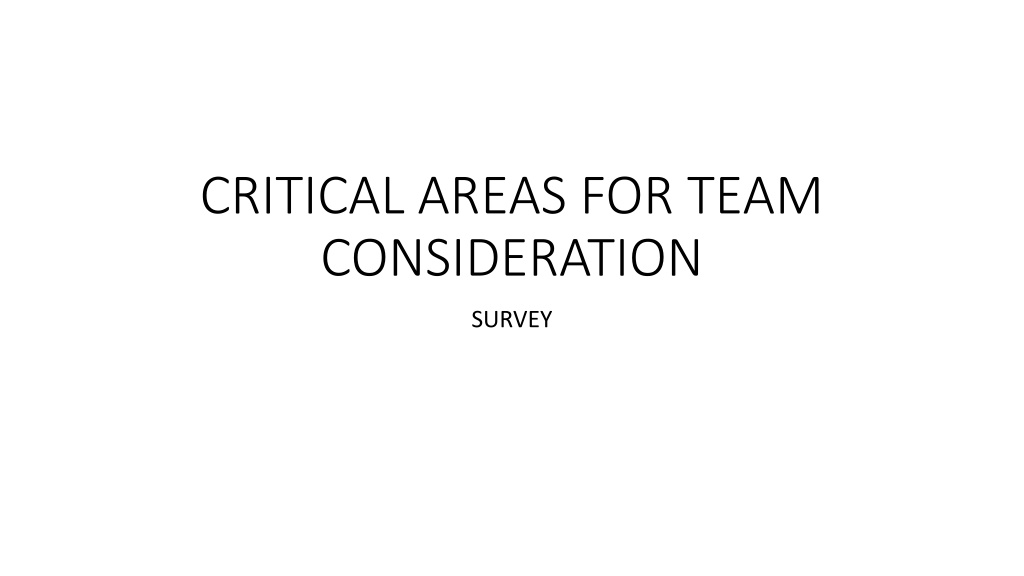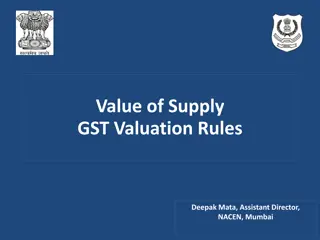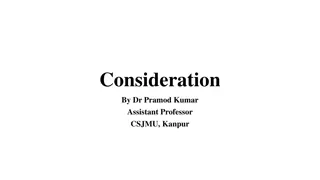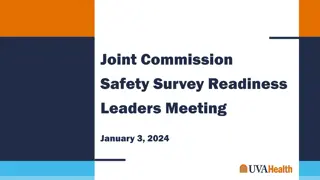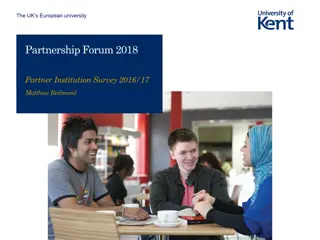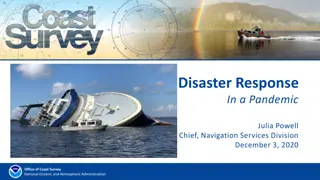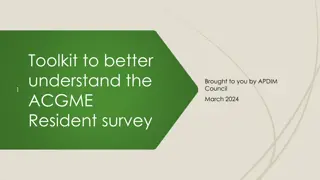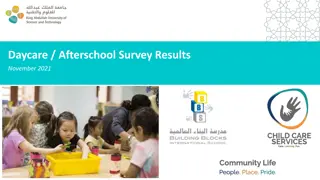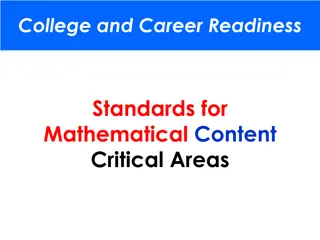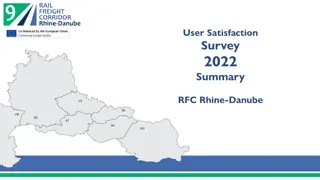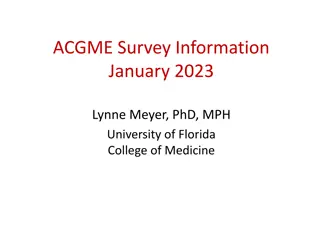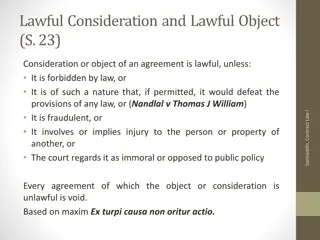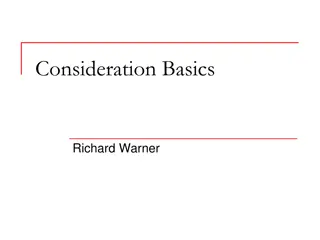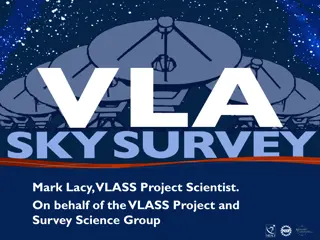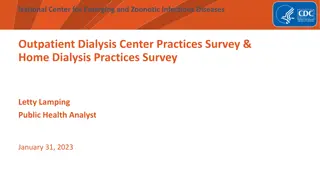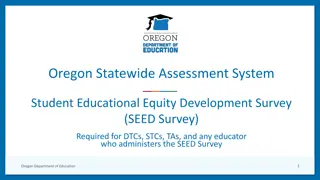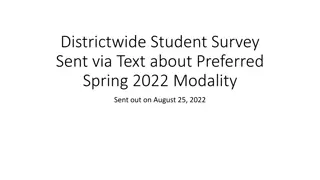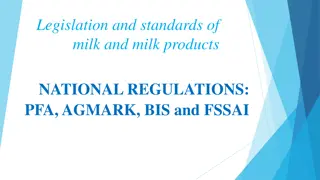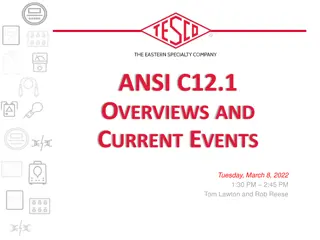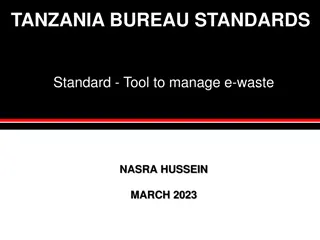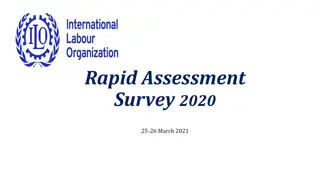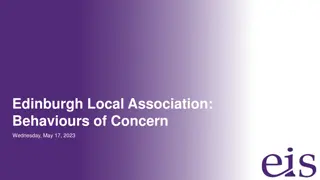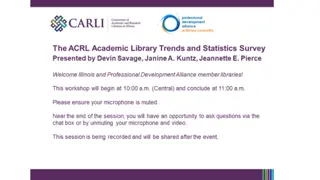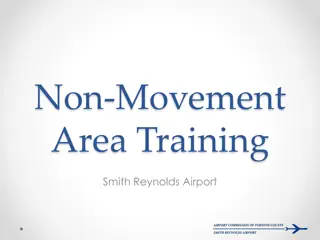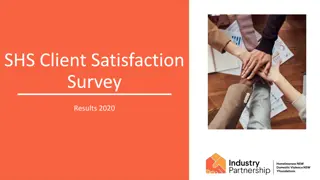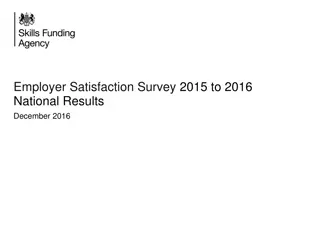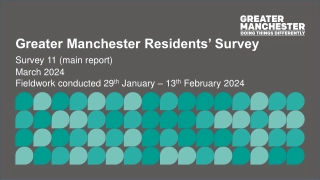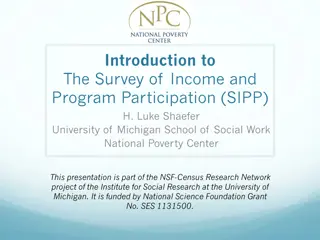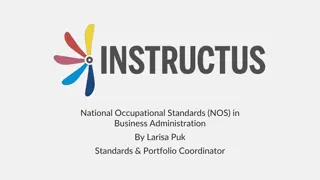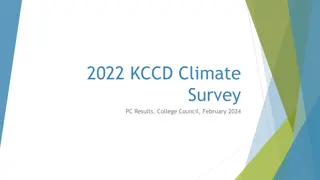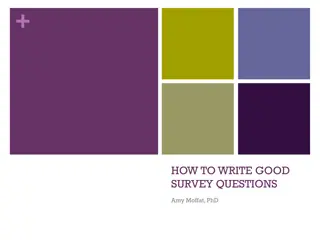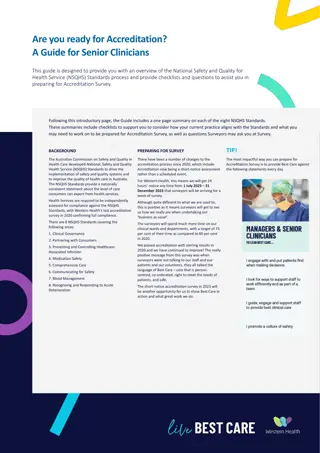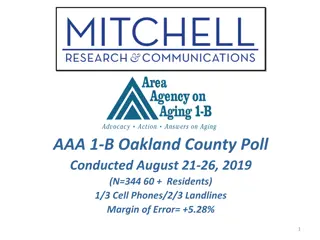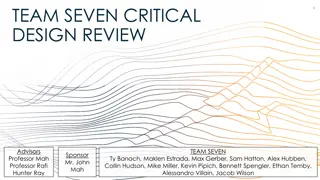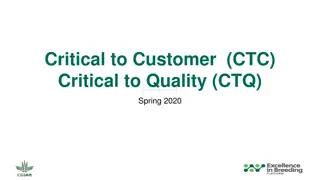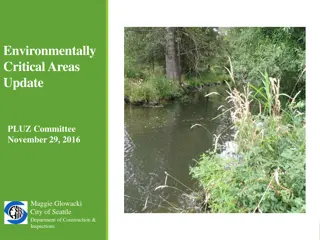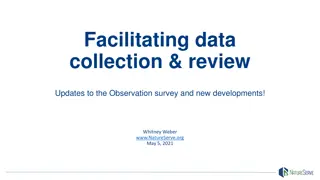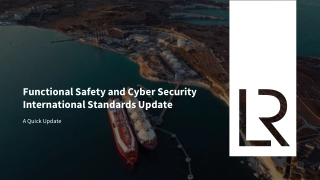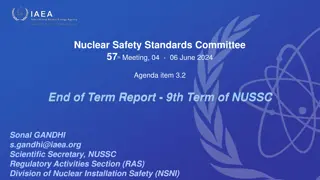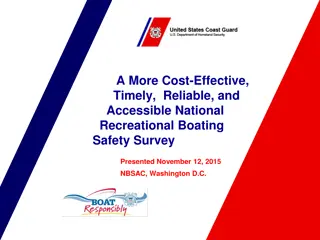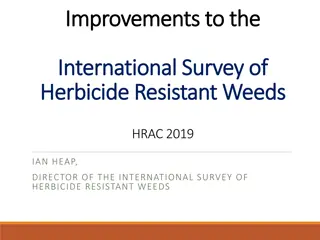Team Consideration Survey: Critical Areas and Essential Standards
Survey focusing on critical areas for team consideration, including team learning commitments, instructional core framework utilization, PLC conversations, task identification for essential standards, teaching decisions based on student data, collaborative problem-solving for student mastery, and more. The survey aims to assess team alignment and practices in improving student learning outcomes through effective teaching strategies and data-driven decision-making.
Download Presentation

Please find below an Image/Link to download the presentation.
The content on the website is provided AS IS for your information and personal use only. It may not be sold, licensed, or shared on other websites without obtaining consent from the author. Download presentation by click this link. If you encounter any issues during the download, it is possible that the publisher has removed the file from their server.
E N D
Presentation Transcript
CRITICAL AREAS FOR TEAM CONSIDERATION SURVEY
1. We have established team learning commitments and protocols to guide us in working and learning together. A. Not True of Our Team B. Our Team is Planning/Starting to Address This C. Our Team is Addressing This D. True of Our Team E. Very True of Our Team
2. We use the instructional core as a framework for lesson design. A. Not True of Our Team B. Our Team is Planning/Starting to Address This C. Our Team is Addressing This D. True of Our Team E. Very True of Our Team
3. We use the instructional core as a framework for PLC conversations. A. Not True of Our Team B. Our Team is Planning/Starting to Address This C. Our Team is Addressing This D. True of Our Team E. Very True of Our Team
4. We identify common tasks that evidence learning of essential standards. A. Not True of Our Team B. Our Team is Planning/Starting to Address This C. Our Team is Addressing This D. True of Our Team E. Very True of Our Team
5. We regularly discuss our teaching decisions and next steps based on student data. A. Not True of Our Team B. Our Team is Planning/Starting to Address This C. Our Team is Addressing This D. True of Our Team E. Very True of Our Team
6. We regularly work together to solve student learning problems and collectively figure out how to get every student to mastery in each identified area. A. Not True of Our Team B. Our Team is Planning/Starting to Address This C. Our Team is Addressing This D. True of Our Team E. Very True of Our Team
ESSENTIAL STANDARDS -TEACHING DECISIONS- LEARNING RESULTS/DATA
7. We have agreed on the criteria we will use to judge the quality of student work related to our identified essential standards. A. Not True of Our Team B. Our Team is Planning/Starting to Address This C. Our Team is Addressing This D. True of Our Team E. Very True of Our Team
8. We regularly discuss our teaching decisions and next steps based on student work. A. Not True of Our Team B. Our Team is Planning/Starting to Address This C. Our Team is Addressing This D. True of Our Team E. Very True of Our Team
9. We regularly discuss the impact of our teaching decisions based on student learning results. A. Not True of Our Team B. Our Team is Planning/Starting to Address This C. Our Team is Addressing This D. True of Our Team E. Very True of Our Team
10. We analyze student achievement data and establish SMART (Strategic, Measurable, Attainable, Result-oriented, and Time-bound) goals to increase student achievement in the specific areas we are interdependently working on to attain. A. Not True of Our Team B. Our Team is Planning/Starting to Address This C. Our Team is Addressing This D. True of Our Team E. Very True of Our Team
11. We identify the prerequisite knowledge and skills that students need in order to master essential standards. A. Not True of Our Team B. Our Team is Planning/Starting to Address This C. Our Team is Addressing This D. True of Our Team E. Very True of Our Team
12. We assess whether students have prerequisite knowledge and skills. A. Not True of Our Team B. Our Team is Planning/Starting to Address This C. Our Team is Addressing This D. True of Our Team E. Very True of Our Team
13. We have knowledge and skill of strategies that will assist students in acquiring prerequisite knowledge and skills, and we use those strategies when students are lacking in specific areas. A. Not True of Our Team B. Our Team is Planning/Starting to Address This C. Our Team is Addressing This D. True of Our Team E. Very True of Our Team
14. We develop and use frequent grade level common formative assessments aligned to essential standards that help us determine individual student mastery. A. Not True of Our Team B. Our Team is Planning/Starting to Address This C. Our Team is Addressing This D. True of Our Team E. Very True of Our Team
15. We establish proficiency indicators for each concept and skill on our common assessments that we want each student to achieve. A. Not True of Our Team B. Our Team is Planning/Starting to Address This C. Our Team is Addressing This D. True of Our Team E. Very True of Our Team
16. We use the results of our common assessments to identify students who need additional time and support to master essential standards, and we respond as a grade level system to ensure students receive that support. A. Not True of Our Team B. Our Team is Planning/Starting to Address This C. Our Team is Addressing This D. True of Our Team E. Very True of Our Team
17. We use the results of our common assessments to assist in building one anothers capacity as part of an ongoing process of continuous improvement. A. Not True of Our Team B. Our Team is Planning/Starting to Address This C. Our Team is Addressing This D. True of Our Team E. Very True of Our Team
